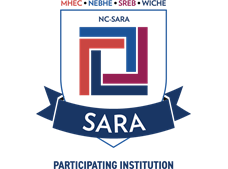National Council for State Authorization Reciprocity Agreements (NC-SARA)
NC-SARA:
 |
Palm Beach State College has been approved to participate in the National Council for State Authorization Reciprocity Agreements (NC-SARA).
The National Council for State Authorization Reciprocity Agreements (NC-SARA) is a nonprofit organization (501(c)(3)) that was established to facilitate access to educational opportunities through the regulation of distance education programs. Here are more detailed points about NC-SARA and its significance:
|
1. Establishment and Purpose: NC-SARA was established in 2013 by higher education stakeholders, including state regulators, education leaders, accreditors, and the U.S. Department of Education. Its primary goal is to streamline regulations for distance education programs through the State Authorization Reciprocity Agreements (SARA).
2. SARA and Regional Compacts: NC-SARA operates in partnership with four regional higher education compacts (Midwestern Higher Education Compact, New England Board of Higher Education, Southern Regional Education Board, and Western Interstate Commission for Higher Education). These compacts work together to administer SARA and ensure its effectiveness across states.
3. Participation: Currently, SARA has participation from over 2,400 institutions across 49 member states, the District of Columbia, Puerto Rico, and the U.S. Virgin Islands. Institutions voluntarily participate in SARA to improve the quality of distance education, increase access for students across state lines, and reduce regulatory costs and bureaucracy.
Benefits
Improved Program Quality: SARA enhances the quality of distance education programs through standardized regulatory practices.
Increased Access: It makes it easier for students to access distance education programs offered by participating institutions across different states.
Cost and Bureaucracy Reduction: SARA reduces costs and bureaucratic hurdles for both states and institutions by streamlining regulatory processes.
Coordination and Oversight: It improves coordination between states on higher education opportunities and provides valuable oversight of distance education programs.
Data Sharing: SARA facilitates the sharing of out-of-state learning experience data, such as clinical hours and practice teaching, to ensure program quality and regulatory compliance.
Regulatory Framework: Under SARA, institutions adhere to established national standards for distance education. This ensures that students receive a high-quality education regardless of where the institution is located.
Impact: NC-SARA and SARA have had a significant impact on expanding educational opportunities for students, particularly in distance education, by creating a more uniform and efficient regulatory environment across participating states.
In summary, NC-SARA plays a crucial role in supporting the growth and quality of distance education programs by harmonizing regulations and fostering collaboration among states, institutions, policymakers, and students.